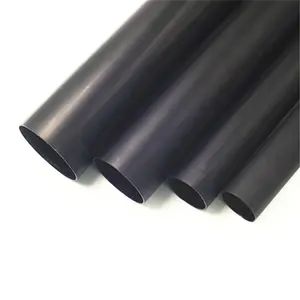Understanding Silicone Insulation Sleeves
Silicone insulation sleeves are essential components in electrical systems, offering protection and stability. These sleeves are designed to insulate and shield wires and cables, ensuring safe and efficient electrical conductivity. The silicone insulation sleeve stands out for its durability and versatility, catering to a wide range of insulation needs.
Types and Materials
Among the various insulating materials, silicone coated fiberglass sleeve and silicone fiberglass sleeve are prominent for their thermal resistance and strength. The fiberglass silicone sleeve combines the durability of fiberglass with the flexibility of silicone, making it suitable for high-temperature applications. Meanwhile, silicone cable sleeve options are tailored for cable management, providing a neat and organized approach to wiring.
Applications and Features
The application of silicone insulation sleeves spans across various industries, from automotive to electronics. The silicone rubber coated fiberglass sleeving is particularly noted for its non-conductive properties, making it ideal for protecting wires from extreme temperatures. These sleeves are not only resistant to heat but also to cooling extremes, maintaining their integrity in diverse environments.
Advantages of Silicone Insulation
The advantages of using a silicone insulation sleeve are manifold. Its inherent flexibility allows for easy installation around irregular shapes and in tight spaces. The material's resistance to chemicals and moisture makes it a reliable choice for harsh conditions. Furthermore, the vidaflex 111, a variant of silicone insulation, offers enhanced thermal protection and is widely recognized in the industry for its performance.
Environmental Resistance
Environmental factors can severely impact the functionality of electrical systems. The silicone rubber fiberglass sleeving is engineered to withstand corrosive elements, ensuring long-term reliability. This characteristic is particularly beneficial for outdoor installations, where exposure to the elements is inevitable.
Choosing the Right Sleeve
Selecting the appropriate silicone insulation sleeve requires consideration of the specific needs of the electrical system. Factors such as temperature range, dielectric strength, and flexibility should guide the choice. With a variety of silicone insulation sleeves available, it is crucial to match the right type to the application to ensure optimal performance.










































 浙公网安备 33010002000092号
浙公网安备 33010002000092号 浙B2-20120091-4
浙B2-20120091-4